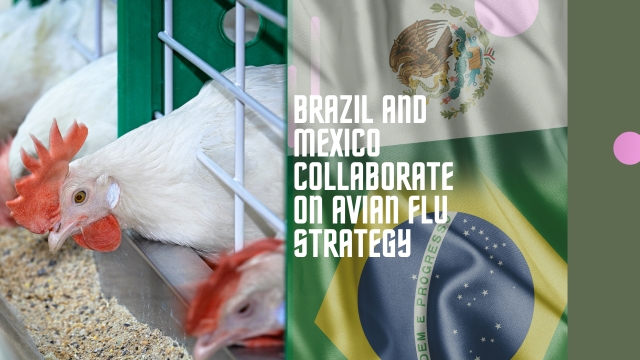Brazil and Mexico are collaborating on a strategic initiative to facilitate the continuous flow of poultry and egg trade between the two nations, even in the face of potential avian flu outbreaks. This joint effort was announced by Mexico’s agriculture ministry , as reported by renowned news agency Reuters.
The primary objective of the plan is to identify specific regions in each country that remain unaffected by potential avian flu outbreaks. The aim is to establish a comprehensive map, ensuring that trade can persist from those disease-free areas. This information was disclosed in an official statement from the ministry, with reference to insights provided by Javier Calderon, the head of the health safety agency. Brazil, as the leading global poultry exporter, has encountered recent cases of highly pathogenic bird flu in both wild and backyard poultry. On the other hand, Mexico, while producing a substantial amount of poultry, only exports a small fraction of its production. Notably, Mexico reported its first commercial case of avian flu for the current season in November.
To mitigate the impact of potential outbreaks on trade, the collaborative initiative proposes the establishment of a “containment zone” following the guidelines set by the World Organization for Animal Health (WOAH). This strategic approach aims to prevent a nationwide ban on exports in the event of avian flu affecting commercial flocks.
The development of this regional plan reflects a proactive and cooperative stance by Brazil and Mexico in addressing challenges related to avian flu and its potential impact on the poultry and egg trade. By leveraging established international guidelines from WOAH, the two countries are working towards a solution that not only ensures the safety of poultry products but also safeguards their economic interests in the face of health-related challenges.
The collaborative effort between Brazil and Mexico involves a meticulous mapping of disease-free areas, adhering to WOAH guidelines, and implementing a containment zone strategy. This approach aims to maintain the momentum of poultry and egg trade between the two nations, even in the presence of avian flu threats, demonstrating a commitment to both public health and economic stability.





